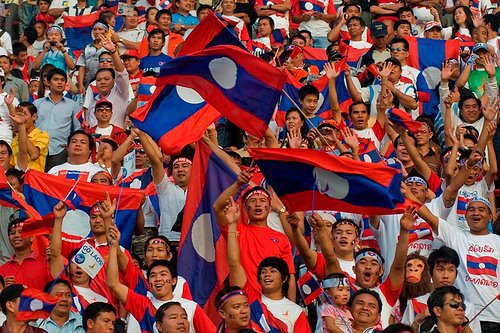Post by Admin Saovaluck on 2nd Mar, 2012 at 4:59pm
Press Freedom & Controversy
In regards to Freedom of the Press, Laos is currently ranked 168th out of 178 nations (as conducted by Reporters Without Borders). This list refers to how free a nation's forms of communication are in respect to journalism, electronic media, published media and so on. Freedom in this case is based on liberal ideas, and thus usually implies an independence from governmental influence or corruption, and whether a society is allowed their own discretion, independent thought and an expression of human rights. It is also based on what information is disclosed to the public, the nature of the information and whether the media is based on a national interest or the personal interest of those who control it.
Laos maintains its national identity through strict regulation of their journalists. It is a criminal law for a journalist to write or publish anything that may "weaken the state", so journalists learn to censor themselves in full knowledge that the projection of any personal or anti-government opinion will not be published and will also have negative repercussions upon the journalist themselves. It is also illegal to import any form of media that contradicts the nation's beliefs or introduces new policies that offend the “national culture”.
Foreign journalists are not openly welcomed in Laos, and risk persecution if they “obstruct the authorities” or offend the national culture. They are watched with caution, and often banned from visiting certain parts of the country. In the past, foreign journalists have been arrested for such reasons, and the Lao/Hmong people who may have aided them in their reporting are punished.
Regulations are necessary to maintain the government's control over its people, supporting their national identity. Security measures were also employed as a method of silencing anti-government resistance groups who attempted and continue to attempt to share their opinions through print, broadcast and electronic media. For example, after speaking out about how Laos needed reform, journalist Thongpaseuth Keuakoun, and many others who supported him, were imprisoned for their views.
More recently, bilingual/foreign forms of media (Vientiane Times, La Renovateour) have been made available. Cable television is available to those who can afford it, and Thai programs are broadcast in the main city and near the border. However, all content is monitored. There remains a focus around Laos and “friendly countries”, such as Vietnam and Burma, about which content must be free from criticism.
There is foreign pressure on Laos to change and improve its press freedom.
